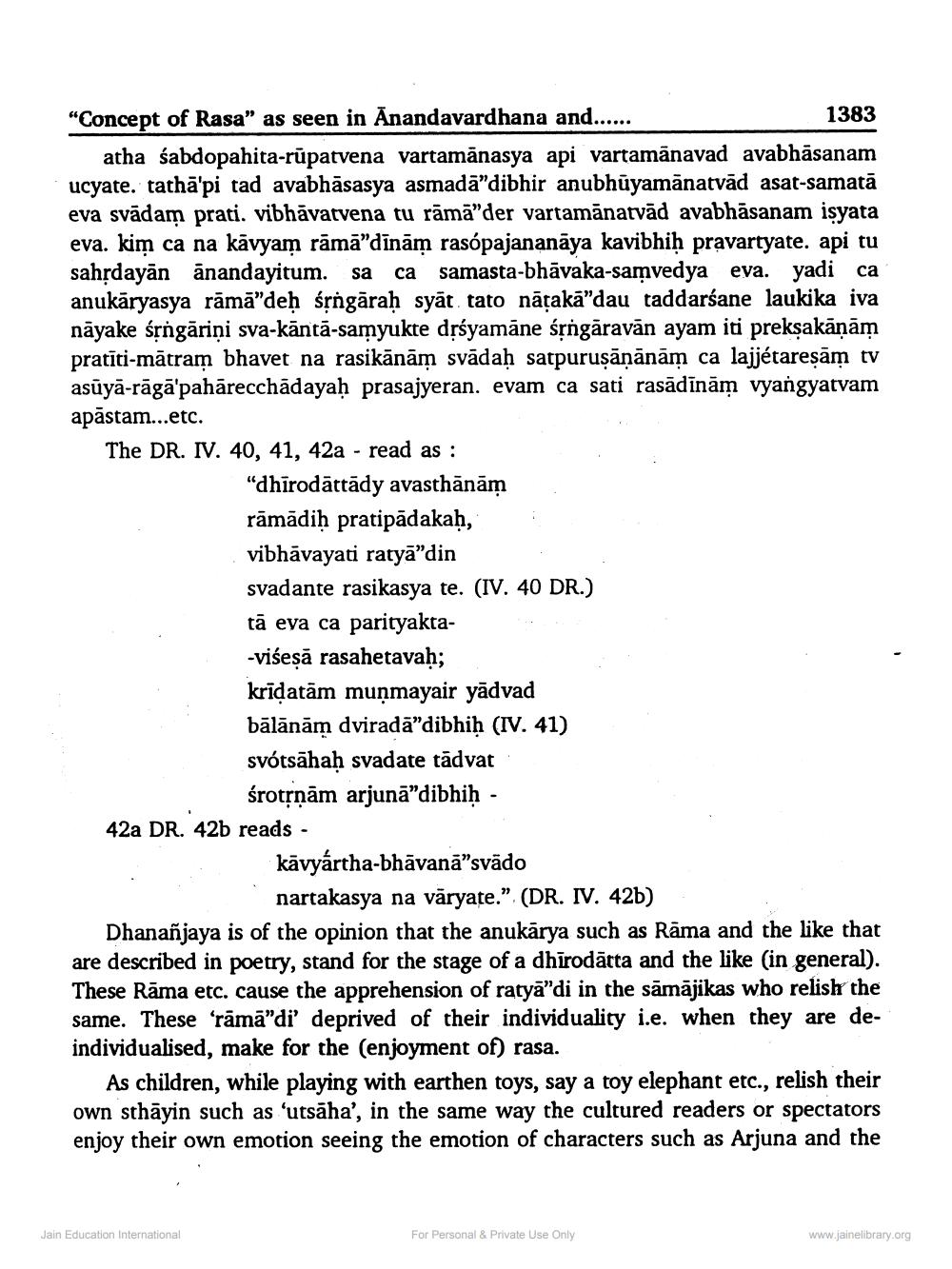________________
"Concept of Rasa" as seen in Anandavardhana and......
atha śabdopahita-rupatvena vartamānasya api vartamanavad avabhāsanam ucyate. tatha'pi tad avabhāsasya asmada"dibhir anubhūyamānatvād asat-samatā eva svādam prati. vibhāvatvena tu rāmā"der vartamānatvād avabhāsanam iṣyata eva. kim ca na kavyam rāmā”dīnām rasópajananāya kavibhiḥ pravartyate. api tu sahrdayānānandayitum. sa ca samasta-bhāvaka-samvedya eva. yadi ca anukāryasya rāmā"deḥ śṛngāraḥ syat tato nāṭaka"dau taddarśane laukika iva nayake śṛngāriņi sva-kāntā-samyukte dṛśyamane śṛngāravan ayam iti prekṣakāṇām pratiti-matram bhavet na rasikānām svādaḥ satpuruṣāṇānām ca lajjétareṣām tv asuya-rāgā'pahārecchādayaḥ prasajyeran. evam ca sati rasādīnām vyangyatvam
apāstam...etc.
The DR. IV. 40, 41, 42a - read as : "dhīrodāttādy avasthānām rāmādiḥ pratipādakaḥ,
vibhāvayati ratyā"din
svadante rasikasya te. (IV. 40 DR.)
tā eva ca parityakta
-viśeṣā rasahetavaḥ;
krīḍatām munmayair yādvad bālānām dvirada"dibhiḥ (IV. 41) svótsähaḥ svadate tādvat
śrotṛṇām arjunā"dibhiḥ -
42a DR. 42b reads -
1383
kāvyártha-bhāvanā”svādo
nartakasya na vāryate." (DR. IV. 42b)
Dhananjaya is of the opinion that the anukarya such as Rāma and the like that are described in poetry, stand for the stage of a dhirodatta and the like (in general). These Rāma etc. cause the apprehension of ratyā"di in the sāmājikas who relish the same. These 'rāmā"di' deprived of their individuality i.e. when they are deindividualised, make for the (enjoyment of) rasa.
As children, while playing with earthen toys, say a toy elephant etc., relish their own sthayin such as 'utsāha', in the same way the cultured readers or spectators enjoy their own emotion seeing the emotion of characters such as Arjuna and the
Jain Education International
For Personal & Private Use Only
www.jainelibrary.org




